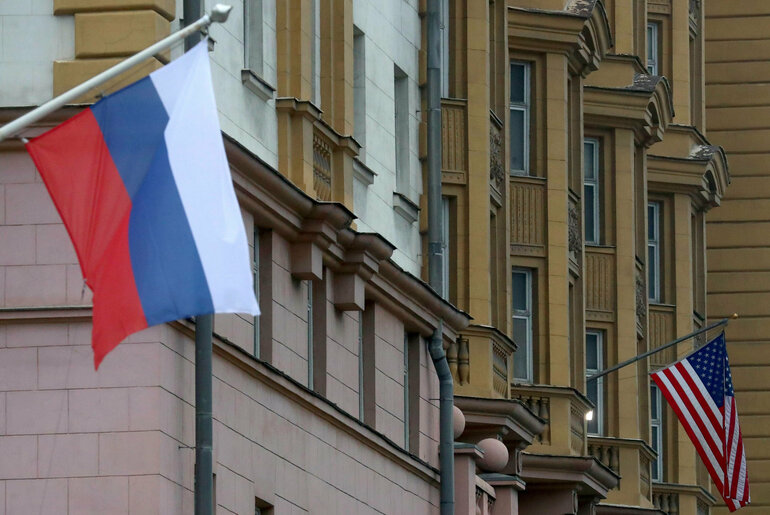The Eagle and the Bear: US-Russian Relations Under Biden

In 2001, then US president George W. Bush claimed to have looked into Vladimir Putin’s eyes and got a measure of the Russian leader’s soul. But the incipient political romance between Bush and Putin soon faded, and relations between the world’s main nuclear powers gradually deteriorated. In the two decades since, their bilateral ties have vacillated between wary and combative, reflecting the divergent political priorities and worldviews of the US and Russia.
Personalities have also mattered: Bush’s successor, Barack Obama, rankled Putin by characterising Russia as a declining regional power, while the next incumbent, Donald Trump, exhibited an oddly deferential attitude towards his counterpart in the Kremlin. How new US president Joe Biden’s administration will interact with Moscow is still uncertain, although early indications are that it will follow a harder line than that adopted by the previous occupant of the White House.
Reclaiming the mantle: a normative superpower
On 7 November 2020, in his first public address as US president-elect, Biden declaimed his vision of a US that ‘would lead not only by the example of our power, but by the power of our example’. This desire to re-establish America as a normative superpower in the eyes of the world has since become a cornerstone of Washington’s revised foreign policy. Critically, this aim aligns well with both hard- and soft-power objectives: recommitting to promoting democracy and protecting human rights is useful if the goal is to stop the creeping spread of authoritarianism by attenuating China’s global rise and thwarting Russian interference in the post-Soviet space.
Exemplifying this shift, Washington is currently preparing to impose a new set of sanctions on Russia. The measures are in response to the poisoning in August 2020 of prominent Kremlin critic Alexei Navalny and last year’s SolarWinds hack, a massive data breach that exposed critical vulnerabilities in US cybersecurity. Likewise, Washington is also backing Ukrainian president Volodymyr Zelenskyi's recent crackdown on separatists in Ukraine’s eastern Donbas region and their media and financial supporters, including Putin’s close friend and political ally Viktor Medvedchuk. As Biden stated in early February 2021, ‘The days of the United States rolling over in the face of Russia’s aggressive actions—interfering with our elections, cyberattacks, poisoning its citizens—are over. We will not hesitate to raise the cost on Russia and defend our vital interests and our people.’
Rebuildig relations with Europe and containing Russia
Washington’s relations with many key European allies, foremost among them France and Germany, were badly frayed during the Trump years. As such, the new US administration is overtly signalling that it is prepared to invest significant time and effort to rebuild trust in the transatlantic partnership. Biden has also evinced clear support for European integration and supranational cooperation on a range of issues. Highest on the agenda, however, is assuring mutual security. This emphasis is not surprising given that he once referred to NATO as ‘the single most consequential alliance in the history of the United States’.
However, the fissures that have appeared between the US and Europe may not be easily repairable, constraining coordinated attempts to contain Russia. Among other indicators, there now appears to be a greater reluctance among Europeans to unquestioningly accept Washington’s unilateralism and hegemonic pretensions in foreign affairs.
European leaders, meanwhile, have also gone their own ways in recent years when it comes to dealing with Russia. French president Emmanuel Macron, for instance, has demonstrated a willingness to work with the Kremlin. And German chancellor Angela Merkel has so far resisted pressure from Washington to abandon the Nord Stream 2 project, which, if completed, will transport Russian natural gas to Germany via a pipeline under the Baltic Sea. Biden, even before he was president, opposed this initiative, labelling it a ‘fundamentally bad deal for Europe’ and instead supporting the development of the Southern Gas Corridor, which would reduce Europe’s energy dependence on Moscow by supplying gas from the Caspian basin and the Middle East.
Future outlook
Still, the prospects for US-Russian relations, just like the prospects for Washington’s relations with European capitals, are not entirely pessimistic. At a bare minimum, there exists the possibility of achieving a cold peace with Moscow; Biden and Putin took a meaningful step in this direction on 3 February when they agreed to extend New START, a treaty on nuclear non-proliferation, for an additional five years.
There is no doubt that the US has adopted a more coherent and punitive foreign policy towards Russia since Biden took office. But this should not be taken to mean that relations with Russia will inevitably deteriorate further. In fact, there are some reasons for cautious optimism. Unlike his mercurial predecessor, Biden is a seasoned diplomat and a centrist who is well versed in the art of compromise. Putin is likewise a pragmatic political operative. Therefore, while observers should not expect quick or easy resolutions to the myriad conflicts and pressure points that plague US-Russian relations, they can perhaps take solace in the likelihood that ties between these two states will become more routinised and predictable going forward.
George Soroka is lecturer on government and the assistant director of undergraduate studies at Harvard University.